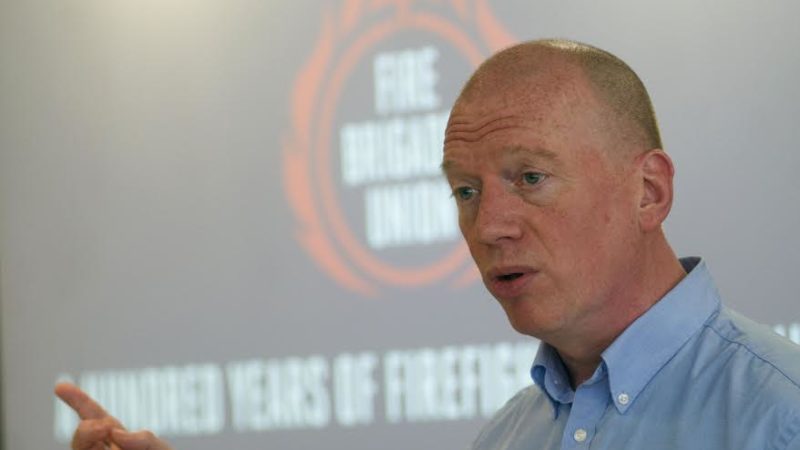
The Labour leadership contest has concluded at a time when the importance of trade unionism has never been more apparent. Faced with the biggest public health crisis in a century, unions have been on the frontline fighting for workers. From protecting wages to demanding testing and protective equipment to exposing and challenging the likes of Tim Martin and Mike Ashley, unions all over have shown that they are needed now as much as ever.
At a time when public servants, the low paid, and the grotesquely branded ‘unskilled’ are finally receiving some of the recognition they deserve, Labour should be proud to have been founded by the very unions that represent them. At its best, the Labour Party has trade unions, and the working class, at its heart.
But the relationship between the party and unions cannot be taken for granted. It’s no secret that Labour’s history with unions has often been tumultuous. For many of us, the Tony Blair years marked a low ebb on relations with the party largely created by the unions.
Under New Labour, firefighters tried their best to resist as the party that was founded to represent them attacked their pay and conditions and dismantled the UK’s fire safety infrastructure.
Labour had quickly become a party of free markets and privatisation, diluting or reversing the party’s historic commitment to public ownership. By the end, trade unions had been completely sidelined, with almost no role in policy-making within the party. Party conference became a ceremony for the leader, not a place where we forged the policies our people needed.
The final straw for my union, the Fire Brigades Union, came before some of New Labour’s worst excesses. It was the Blair government’s disgraceful treatment of firefighters during our pay dispute in 2002 that did for us. Labour had turned its back on us and our members voted to disaffiliate. But in 2015, when one of our strongest allies, Jeremy Corbyn, became leader we quickly re-joined.
There are many lining up to trash Jeremy’s legacy, and I am glad that Keir Starmer has not been among them. While there are lessons to be learnt from our devastating election result, Jeremy Corbyn made Labour an anti-austerity party; he inspired millions of young people, making Labour the largest political movement in Europe; and he made Labour once again a party of and for trade unions.
Unions campaigned for Labour with all our collective might in the election, and we hope to do so again at the next one. We have had unprecedented access to the leader’s office and the policy-making process under Corbyn. While we have not always agreed with MPs and party staffers, we have always had meaningful discussions and an equal seat at the table. This should continue.
There has been much debate about Labour’s “overloaded” 2019 manifesto. But buried inside was a commitment that gave the party back its soul. Finally, Labour was unequivocally committed to repealing the UK’s draconian anti-union laws, beyond just the 2016 Trade Union Act.
Jeremy Corbyn and John McDonnell were trade union friends and allies. They had stood on picket lines and spoken up for workers for decades, often against their own party. They founded the FBU’s parliamentary group, and McDonnell was its first convenor. While their time leading our party may not have been perfect, they made Labour unashamedly and unequivocally pro-worker and that must not – and cannot – be rolled back.
My union was proud to back Rebecca Long-Bailey in this contest and – I will not lie – we are disappointed that she will not be Labour’s next leader. Her commitment to empowering trade unions has been unmatched and she has sworn by the principles that made Labour a welcoming party for unions like mine.
But I know that Keir Starmer has stood on picket lines; he has defended activists against parasitic corporations; he has fought for unions in the courts and has taken on Tory governments. And he will be flanked by Angela Rayner as deputy leader, a strong friend and ally of the union movement.
While Starmer may not have been our candidate, we will support him. But he must also respect the gains in policy made over the past five years. And there can be no attempt to roll back the influence of party members on our conference and policy making. The moves to further democratise Labour must also continue.
There are already some calling for a purge of party members on the left – people like me. They want to get rid of those who have remained loyal to Labour under Corbyn, and who remained loyal to workers in the years of New Labour. If Starmer is to unite the party, he must ignore their siren calls. Likewise, it would be a complete mistake for party members who did not vote for the new leader to leave in protest. Politics is about debate and struggle – and both must continue.
I congratulate Keir Starmer on his victory. He has promised Labour members and trade unions that another future is possible, and we will work with him to deliver it. But that future must be one that keeps Labour’s radical spirit; that unites us around a worker-led platform; that builds and empowers trade unions.
It is workers who will see us through the present crisis, demonstrated by the huge support for NHS staff and other frontline key workers. The world we build afterwards must be theirs.




More from LabourList
Nudification apps facilitate digital sexual assault – and they should be banned
Diane Abbott suspended from Labour after defending racism comments
Labour campaign groups join forces to call for reinstatement of MPs